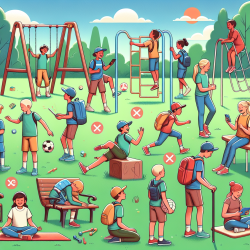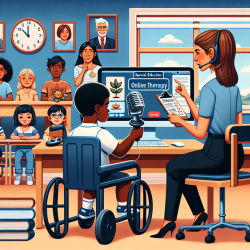Introduction
The COVID-19 pandemic has been a catalyst for many unexpected changes across various sectors, including education and juvenile justice. One significant outcome was the temporary pause in the school-to-prison pipeline, a phenomenon where school disciplinary practices contribute to students' involvement in the criminal justice system. This pause offers valuable insights and potential strategies for educators and practitioners, especially those providing online therapy services like TinyEYE, to improve outcomes for vulnerable children.
Understanding the School-to-Prison Pipeline
The school-to-prison pipeline is a critical issue that disproportionately affects Black and Latinx students, students with disabilities, and those in impoverished communities. It is characterized by strict disciplinary policies such as zero tolerance, which can lead to suspensions, expulsions, and referrals to law enforcement. These practices often place students on a trajectory toward juvenile and adult criminal systems.
The Pandemic's Impact
During the pandemic, the shift to virtual learning inadvertently reduced the reach of these harsh disciplinary measures. According to a survey of juvenile justice agencies in 33 US states, there was a 27% reduction in the adolescent detention population between March and May 2020. This decrease in referrals to the justice system suggests that society did not become less safe, indicating that many minor offenses leading to detention may not serve the community's interests.
Lessons Learned
Several lessons can be drawn from this period:
- Prevention-Oriented Approaches: The pandemic highlighted the need for proactive strategies to prevent disciplinary issues before they arise. Health-care providers and educators should focus on promoting coping strategies and mental health support.
- Understanding Special Education Protections: Families need to be informed about the special education process and protections against suspensions and expulsions for students with disabilities.
- School-Justice Partnerships: Collaborative efforts between schools and judicial systems can help implement effective strategies to address student misconduct without resorting to justice system referrals.
Implementing Data-Driven Strategies
For practitioners, particularly those involved in online therapy services, the following strategies can be implemented to create positive outcomes for students:
- Data-Driven Interventions: Utilize data to identify students at risk of entering the school-to-prison pipeline and develop targeted interventions to support their needs.
- Collaborative Efforts: Work with educators, families, and community organizations to create a supportive network for students, ensuring they receive comprehensive care and guidance.
- Advocacy and Education: Advocate for policy changes that prioritize prevention and support over punitive measures. Educate families and communities about the importance of addressing behavioral issues through supportive means.
Conclusion
The pandemic has provided a unique opportunity to reevaluate and improve the systems that contribute to the school-to-prison pipeline. By implementing data-driven strategies and fostering collaborative efforts, practitioners can play a crucial role in creating healthier life trajectories for vulnerable adolescents. To read the original research paper, please follow this link: The pandemic paused the US school-to-prison pipeline: potential lessons learned.










